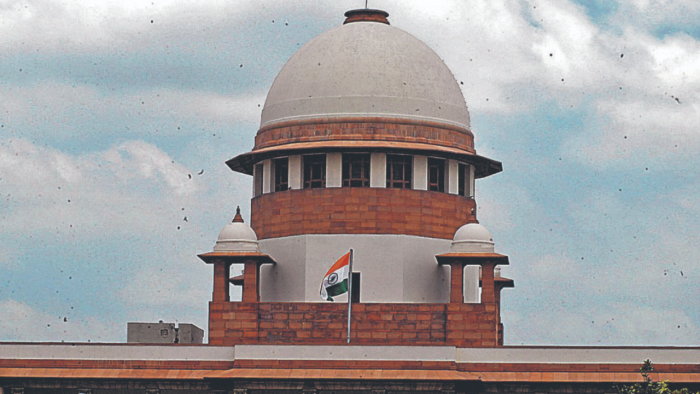
The Supreme Court is currently hearing various pleas questioning the ban on wearing hijab in educational institutions challenging the Karnataka High Court’s judgment of upholding the ban on wearing Hijab in educational institutions of Karnataka.
Speaking for the petitioners, Senior Advocate Sanjay Hegde, raised marks on the state’s power to prescribe the uniform as per the Karnataka Education Act. The Supreme Court bench hearing the case, comprising of Justices Hemant Gupta and Sudhanshu Dhulia in their reply asked ‘if there is no such power to prescribe uniforms, can girls come in minis, midis or anything else that they want.’
The judges emphasized on the fact that there is a dress code in some public spaces, for example, some restaurants allow guests only in a formal dress code, while some restaurants can be visited in a casual dress too.
Hegde then tried to compare the issue with chunni and pagdi. But the judges turned down the argument and said that it cannot be compared to the hijab as it covers the shoulder. In addition, Justice Gupta said that “pagdi is not religious even my grandfather used to wear it while practicing law, don’t equate it with religion.”
The issue picked up fire when some students who wanted to wear hijab to college were not allowed on the campus, thereafter the protests in favour of wearing hijab started. Post which another set of students wanted to wear saffron shawls which ultimately led to a state of unrest in Karnataka’s educational forum.
Due to the tense developments, the government of Karnataka in sync with the HC’s judgment made adherence to the uniform a compulsion and banned both hijab and saffron scarves. Also, in certain cases where a uniform was prescribed by the college authorities, it was advised that the students should dress in an attire that dwells with the idea of equality and unity and should not disturb the daily order.
The current hearing in the Supreme Court remained inconclusive and the matter was adjourned until the next hearing. The issue of national importance is very sensitive and therefore will take its own time for a final verdict by the top court.



